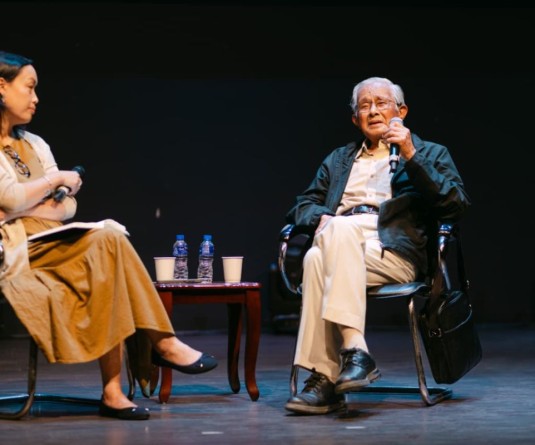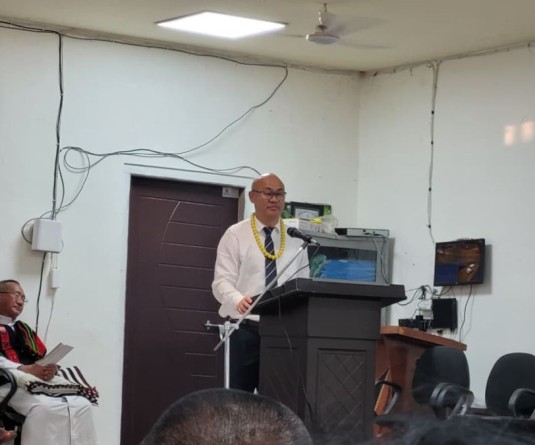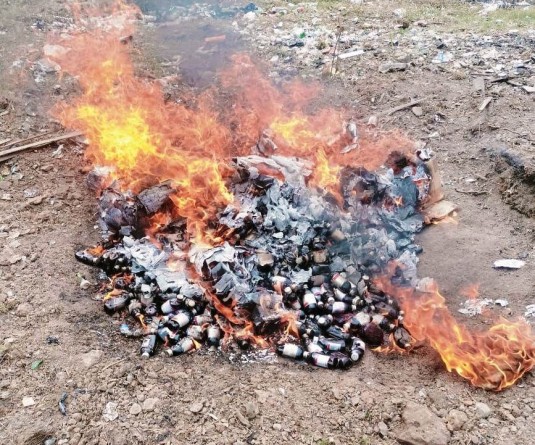
Chizokho Vero
Kisama | October 8
Several ground breaking recommendations and opinions have emerged at the historic consultative meeting with civil societies and tribal hohos on ownership of land and its resources, municipal election and women reservation held here today. Organized by the state government, the consultative meeting, which started at 9:30 AM and lasted till around 6:10 PM, came up with seven recommendations on the matter of “Ownership of Land & its Resources” while five opinions were put forward on the matter of “Municipal Election and Women Reservation.”
Regarding the recommendations arrived at the meeting on “Ownership of Land & its Resources,” the House appreciated the resolution passed by Nagaland Legislative Assembly on July 26, 2010 on the issue of ownership and transfer of land and its resources. It also recognized and affirmed that in Nagaland, ownership of land rests with the people of Nagaland.
The House also recognized and affirmed that the state, or the Government has the full right and authority to requisition and acquire private/Community/tribe land for public purpose, or in public interest on payment of due compensation to the land owners, in terms of the provisions of the Nagaland ( Land Requisition and Acquisition) Act, 1965.
The House recognized and affirmed that in the case of resources lying under the surface such as mineral oil and gas, coal and other precious minerals and metals, the ownership lies with the people of Nagaland as a whole and not with individuals, communities or tribes, who may own the land surface, and therefore, the state, or the Government of Nagaland, as the legitimate representative of the people, have the full right and authority to acquire mineral bearing lands on payment of due compensation for the surface land; to regulate exploration, extraction and development of the mineral resources lying below the surface; and to decide the respective shares of the State Government, the land owners and other stake holders in the royalty accruing from the exploitation and development of minerals.
The house also felt that this arrangement will be in tune with Article 371 (A) of the Constitution of India, which says that no Act of Parliament relating to, amongst others, “ownership and transfer of land and its resources” shall have effect in Nagaland unless the State Assembly by a resolution so decides. The House appreciated the passing of the resolution by the Nagaland Legislative Assembly to activate the provisions of Article 371(A), and as such, appreciate the consultative meet on the issue. It will be even better if the Government could provide more opportunity and time to the various NGOs/Hohos/ Stakeholders for finalizing the modalities.
The House recognized that all the stakeholders including the state government have a duty to ensure an equitable sharing of benefits arising out of the exploitation of mineral resources among the individual land owner or village and the larger community of the people of the State as a whole.
The House recognized that due to traditional land ownership pattern, there is no uniformity in maintenance of land records. Moreover, multiple village authorities issue certificates of ownership creating confusion and disputes. In this, the House recommended that the government should develop a standard format for such certificates and designate the competent authority whose certificates alone would have legal validity.
Further, deliberating on the issue of Municipal Election and Women Reservation, five opinions were put forward. On this, it was agreed that women empowerment and gender equity was paramount for the development of the society and that they shall be promoted as important issues in Nagaland.
It was agreed that the Urban Local Bodies were a necessity and such formation should follow the democratic processes of election. It was however, the view of the Naga Hoho that there was a need to review such laws and rules for the formation of the ULBs taking into account the traditional and customary practices of the people.
In view that the House remained split on the issue of reservation of seats for women, two opinions and suggestions were recorded. (a) The representatives of the Male Organisations were of the opinion that women representation of one third of the members of the Urban Local Bodies be on the basis of nominations and not election. This was however, not acceptable to women groups. (b) It was suggested that creation of one more extra seat for women in the ULBs in the ratio of one women seat for every two seats for men could be examined by the government.
It was recommended that the matter should be referred to the district level for further discussions before the consultative process comes to an end. This consultative process at the District level should be an inclusive process that would include the women groups in their deliberations.
The House also opined that the next consultative meeting should be fixed well ahead, with prior information disseminated to all concerned, so that all sections of the society can come prepared for such deliberations.






